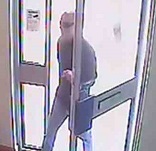 The memory of people who have witnessed or been victims of crime is prone to errors which law officials must take into account when proceeding with criminal cases, according to research to be presented at an event as part of the Economic and Social Research Council’s annual Festival of Social Science on 6 November.
The memory of people who have witnessed or been victims of crime is prone to errors which law officials must take into account when proceeding with criminal cases, according to research to be presented at an event as part of the Economic and Social Research Council’s annual Festival of Social Science on 6 November.
“I was once caught up in a bank robbery and as soon as the perpetrators left a lot of people in the bank started talking about what had happened,” recounts Dr Anne Ridley from London South Bank University, an expert in the field of eyewitness memory.
“I knew that this was bad, as discussing an event after it has happened with other people who were there can corrupt your memory – making you believe that you have seen something when actually you have just been told about it.”
Dr Ridley is all too aware of how susceptible memory is to incorporating incorrect details about an event.
“People might think that they remember events accurately, but actually they don't,” she says. “Memory is not like a video-recorder; it is malleable and can be changed after the event. We also interpret everything we see in line with our existing knowledge and beliefs, so we might have a particular idea of what a ‘bad guy’ might look like and that might bias our actual memory of what someone did look like.”
Research shows that stress can affect memory in a number of ways that aren’t fully understood yet. For example when people are the victims of a violent crime, they can tend to focus on narrow things, such as a weapon.
“During the bank robbery I had a sawn-off shotgun in my face,” says Dr Ridley, “so I have a very good memory of the shotgun, but I don't have a memory of the face of the perpetrator; in fact I couldn't even tell the police what race the perpetrator was.”
The effect is called weapon focus and reflects the fact that in these situations attention is narrowed and people focus on small things at the expense of the wider picture. That can mean that collecting testimony from witnesses can prove difficult for the police.
Some people are also more prone to errors in their memory, such as young children and older people. However, interview methods based on psychological research can improve the accuracy of eyewitness accounts from vulnerable witnesses.
Dr Elizabeth Ahern, a researcher from the University of Cambridge, is an experienced child interviewer and researches child interviewing techniques. Her research focusses on exploring ways in which to maximise the accuracy and completeness of children’s reports so that they can be more useful in criminal trials.
Techniques include teaching children that they can say “I don't know”, or “I don't understand” in response to questions, or getting them to promise to tell the truth. Dr Ahern’s research has shown that interviewers can get more accurate reports from children with the use of open-ended questions, interview instructions and practising building a narrative with the child beforehand. That helps to reduce the likelihood that a false allegation will either be created or perpetuated by poor interviewing.
Dr Ridley and Dr Ahern are discussing the research at Vulnerable Witnesses, at South Bank University’s Keyworth Centre on 6 November, starting at 5.30pm. The event will allow audience members to discover their own eyewitness skills, while learning more about the psychology behind memory.
La nostra sessualità è mediata da acquistare levitra on line un insieme complesso di fattori, tra i quali ritroviamo importantissima la fantasia sessuale.


